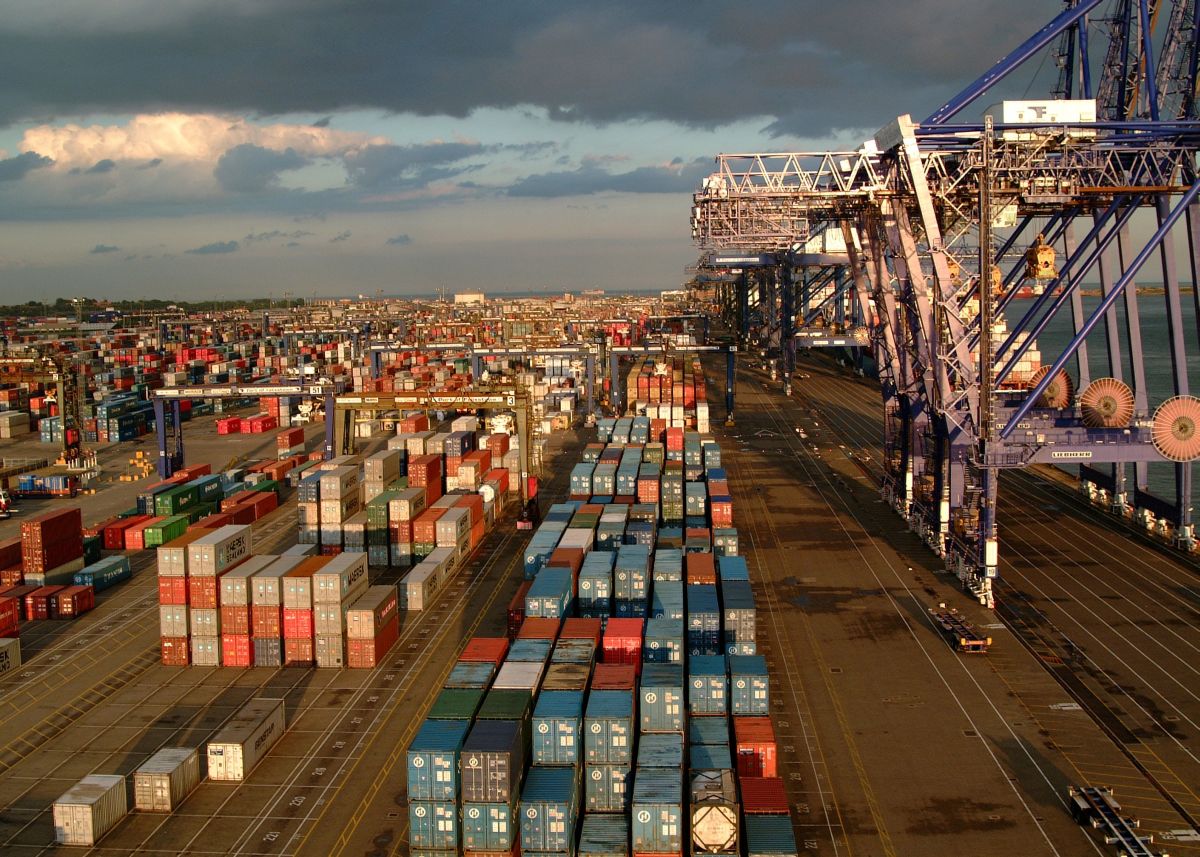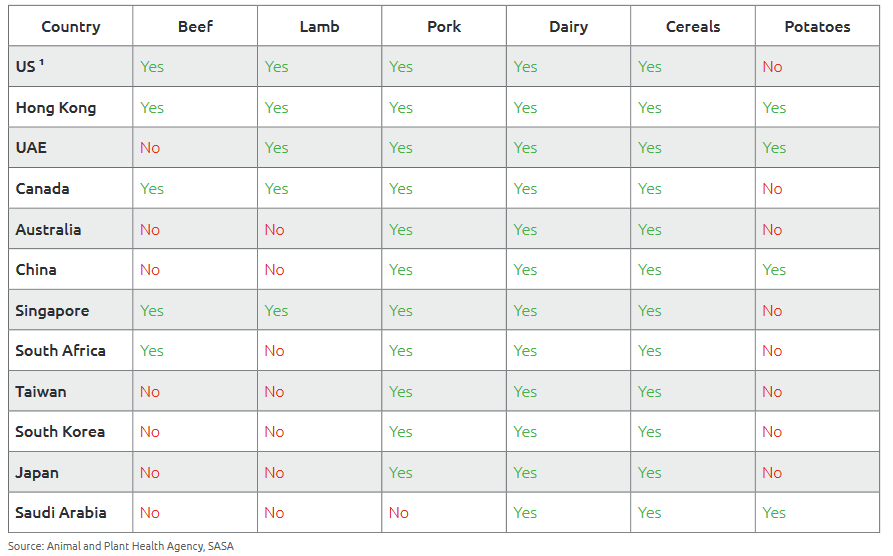
AHDB has released new analysis of what the UK’s trading relationships with non-EU countries might look like post-Brexit.
It examines existing markets for agricultural products, exploring how EU membership influences UK trade, and identifies challenges the future holds for UK trade.
The ‘Horizon’ article also looks at the pros and cons of pursuing a restrictive trade policy and what this might mean for agricultural industries.
Issues around trade with non-EU countries are important for the pork sector, in particular.
So far this year, 45% of UK pig meat exports have been to countries outside the EU, a share which has been rising steadily over recent years.
Some of the product exported to other EU Member States will also have been for onward shipment to non-EU markets.
At present, UK imports of pig meat from outside the EU are negligible, as import tariffs make the EU market unattractive.
However, this could change depending on the approach the UK takes to trade policy.

Post-Brexit trade negotiations
Post-Brexit trade negotiations will depend very much on the relationship the UK will have with the EU following the negotiations.
The UK could remain inside the Single Market, inside of the Customs Union or choose to be outside one or both.
Based on previous assumption that the UK will be outside the Customs Union, it may find itself having to renegotiate the free trade agreements currently in place on a bilateral basis.
The UK is already in a legal relationship with the partner countries having separately ratified these agreements.
Nonetheless, at a very minimum, Brexit would imply textual changes to these agreements to recognise that the agreement is now with the UK directly and not through the EU.
This would imply a process of ratification both by the UK and by each of the individual trade agreement partner countries.
This could be a lengthy process, especially given that the skill set for trade negotiations within the UK is limited, with most of the expertise in this area having been based in Brussels and negotiating on our behalf from within the EU.
Also, under the WTO agreements, countries cannot normally discriminate between their trading partners.
They cannot grant someone a special favour – such as a lower customs duty rate for one of their products – without doing the same for all other WTO members.
This is also known as the most favoured nation principle.
This would imply that it may not be easy to maintain the market access granted under the EU’s trade agreements without negotiations to reach parallel agreements with these countries.
While signing new agreements outside the EU is certainly feasible, whether details can be agreed before the end of the withdrawal period from the EU remains to be seen.
In order to export agricultural goods from the UK, an Export Health Certificate (EHC) is usually required.
These are frequently issued on the basis that EU sanitary, phytosanitary and veterinary standards are equivalent to UK standards.
UK and EU sanitary standards
Membership of the EU has meant that, up until now, EU laws on sanitary and phytosanitary standards (SPS) of production were acceptable to third parties as part of EU trade agreements or arrangements currently in place on a bilateral basis.
Whether other countries will accept UK standards as being equivalent to EU standards post-Brexit is not known.
It may be that they are simply transferable. For instance, China tends to conduct its trade on a bilateral basis and inspects each plant in each country that it intends to trade with.
Indications suggest that for China, this is unlikely to be an issue.
Otherwise, the UK will either have to adopt all existing EU laws on standards of production or renegotiate each trade relationship on a bilateral basis.
If SPS are not easily transferable, this could have serious implications for the continuity of trade on a technical basis.
